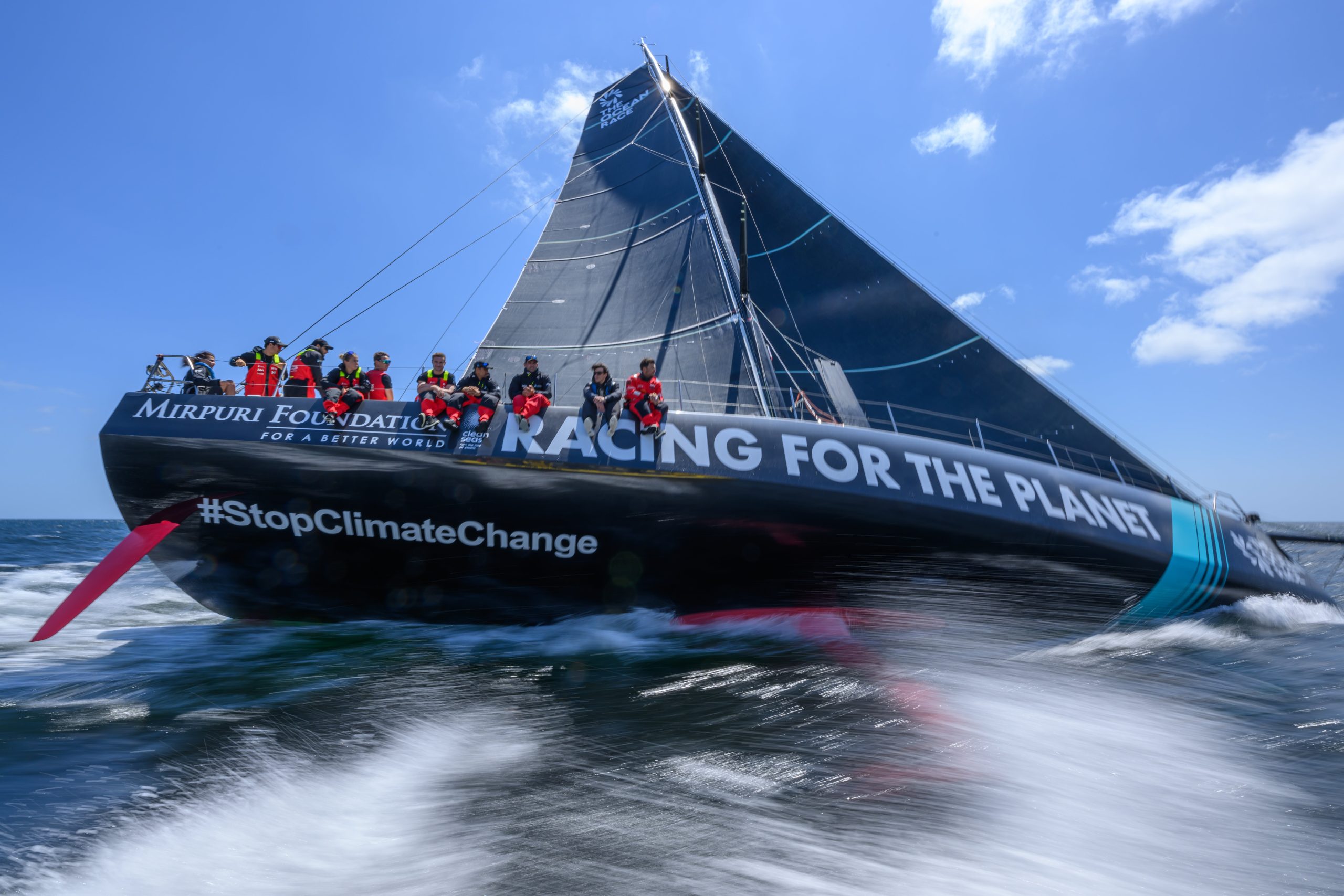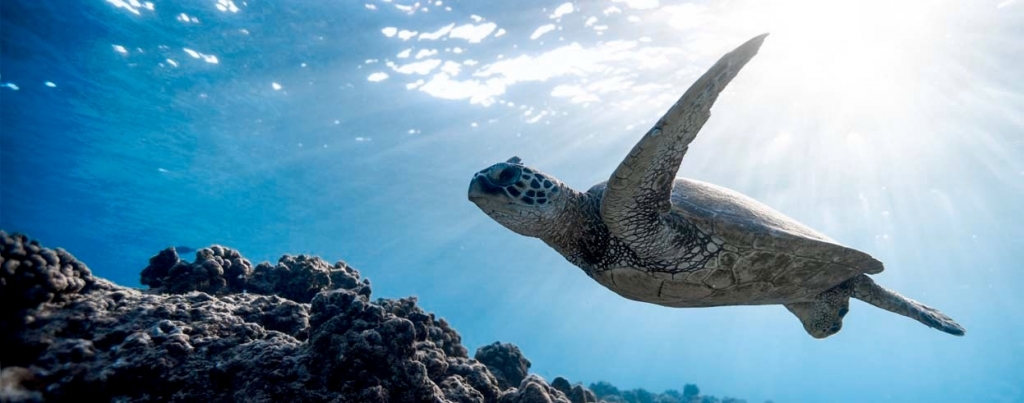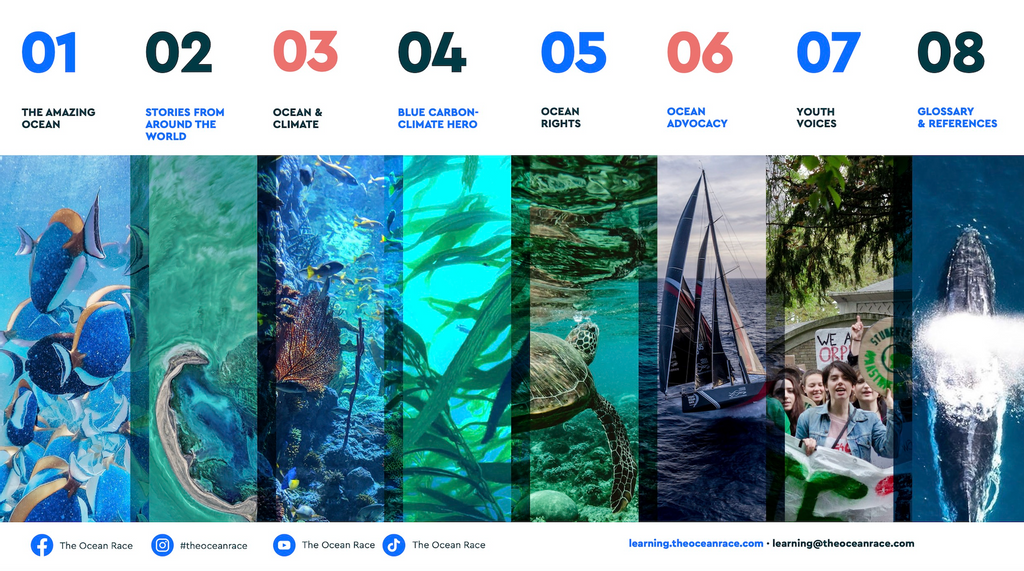Background
Since 2017, The Ocean Race has been building a pioneering education programme to connect young people with the ocean and raise awareness of key environmental threats, particularly plastic pollution.
Originally inspired by earlier youth engagement at Ocean Live Parks, the programme has grown into a multi-tiered initiative, using sport’s global platform to spark understanding, advocacy and action for ocean protection.
At the heart of the programme is a simple message: before young people can be expected to protect the ocean, they must first fall in love with it. That philosophy has shaped an approach that begins with wonder, then explains the challenges and finally empowers action.
Challenge
Plastic pollution was gaining international attention when the programme launched, but meaningful educational content for younger audiences was limited. The Ocean Race saw an opportunity to provide free, engaging resources rooted in science and storytelling.
As the programme expanded, new challenges emerged: tailoring content across age groups and cultures, translating materials into multiple languages and making sure resources remained inclusive and easy for educators to use, regardless of their marine knowledge or geographic location.
Approach
The first full education programme, ‘Champions for the Sea’, launched in 2017. Designed for children aged 6-12, it combined ocean science with creative, emotional and physical learning, from water cycle dances to reflective exercises that built personal connections with the ocean.
In 2022, The Ocean Race expanded its work with ‘Generation Ocean’, a programme for children and young adults aged 12-plus, offering foundational knowledge in ocean advocacy. It was the first educational resource to introduce the concept of ocean rights and included an educator’s guide adaptable to any classroom, even those far from the sea.
Both programmes are free to download online in multiple languages and continue to be updated as The Ocean Race visits new host cities. The team also offers professional development workshops to help teachers deliver ocean literacy confidently, regardless of their background.
250,000-plus young people have engaged with The Ocean Race’s education programme
Results and impact
To date, more than 250,000 young people have engaged with The Ocean Race’s education programme.
In-classroom projects have led to real-world change, such as students campaigning to eliminate single-use plastics from their school canteens. One standout initiative, ‘Ripples of Change’, saw a homeschooled group in Newport, Rhode Island, develop a campaign for a bottle return scheme in their city. The group won a trip to an Ocean Race stopover, spoke at a sustainability summit and later presented their proposal to local lawmakers. Their project was nominated for a global GESS Education Award in Dubai.
The curriculum’s blend of science, mindfulness and active learning helps reach students through diverse ways of learning about the ocean.
Lessons learned
The programme’s success shows that educational outreach doesn’t need to be tied to proximity to the ocean. What matters is emotional connection, relevance and accessibility.
Content that speaks to local realities, while rooted in global values, can resonate deeply when thoughtfully adapted. It also highlights the need for inclusivity. From lesson plans that invite reflection to physical activities and multilingual access, the programme aims to reach students on multiple levels.
Most importantly, it demonstrates that with the right partnerships, especially educators with expertise in innovative learning, sport can be a powerful entry point for lifelong environmental stewardship.
“We always start with the wonder of the ocean,” says Lucy Hunt, The Ocean Race’s Impact Director. “Because if you don’t love it, why would you protect it?”
Topics
Communications and education
Communications
Marine/coastal
Water sports
Event


